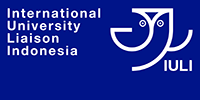
On Tuesday-Wednesday, 28th-29th January 2020, Food Technology students, Andrean Wangsa and Kustiyowati (from FTE 2017), went to IPB, Bogor to attend a Real-Time PCR training event, taught by Dr. Siti Nurjanah, STP, MSi, from the Food Science and Technology Department of IPB.
PCR is short for polymerase chain reaction, which is an experiment performed to quantify the presence of a specific microbe type. Although the main topic was on PCR, students had to learn the fundamentals which included the principles of DNA extraction and basic PCR.
In short, DNA must be separated from the sample; then, PCR is performed to speed up reaction to about 30-40 cycles. The sample is then placed for gel electrophoresis to observe its details and check the similarities to those obtained from references. Real time PCR is an advanced version of PCR which also shows quantitative data instead of qualifying the presence/absence of the microbe in the samples.
The first day was a full on lectures with the introduction of a new PCR machine by Eppendorf called the Mastercycler X50, which provides state of the art biotechnology for PCR. The strengths of the machine include the fact that it has a touch screen system, and it is the first ever to have a gradient, so that the experiment with a sample can be done in different denaturation temperatures simultaneously, and get the ideal balance between high specificity and biomolecular stress, increasing the output.
The second day was a lab session in which attendants could apply the knowledge they received from the previous day. The lab procedures included DNA extraction, 2 types of basic PCR and, lastly, bioinformatics for primer selection with various websites.
The application of knowledge from the seminar is not restricted to food technology students. It is actually very applicable to all study programs related to microbiology, biochemistry, and molecular biology. As academicians, it is important to keep up with the trends in advances, problems, and solutions. This seminar has given a good comprehension to students who plan on working with DNA and genetics as it is an advanced technology that is very professional and, not currently, universally available.
(Andrean Wangsa/FTE2017)


